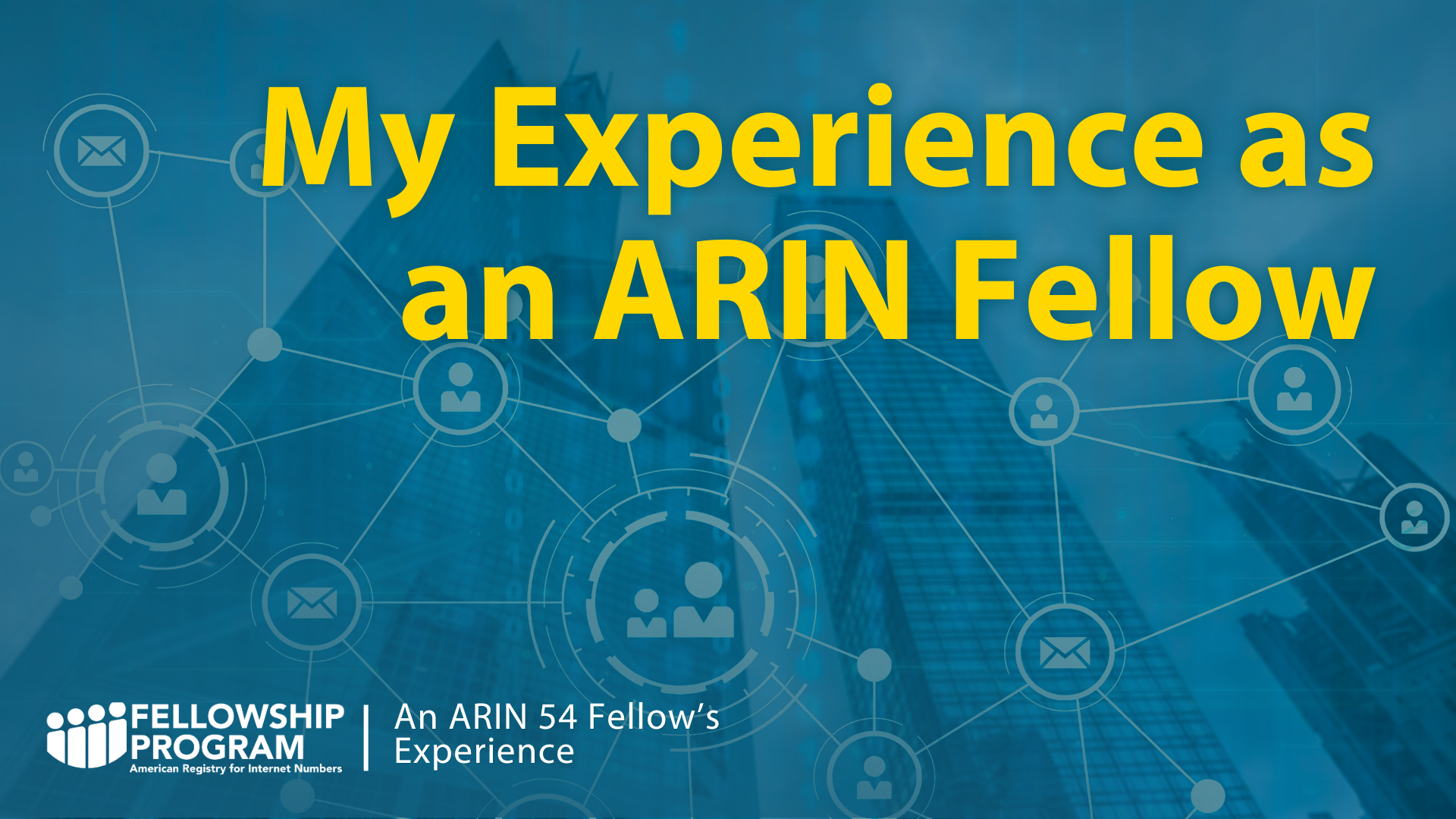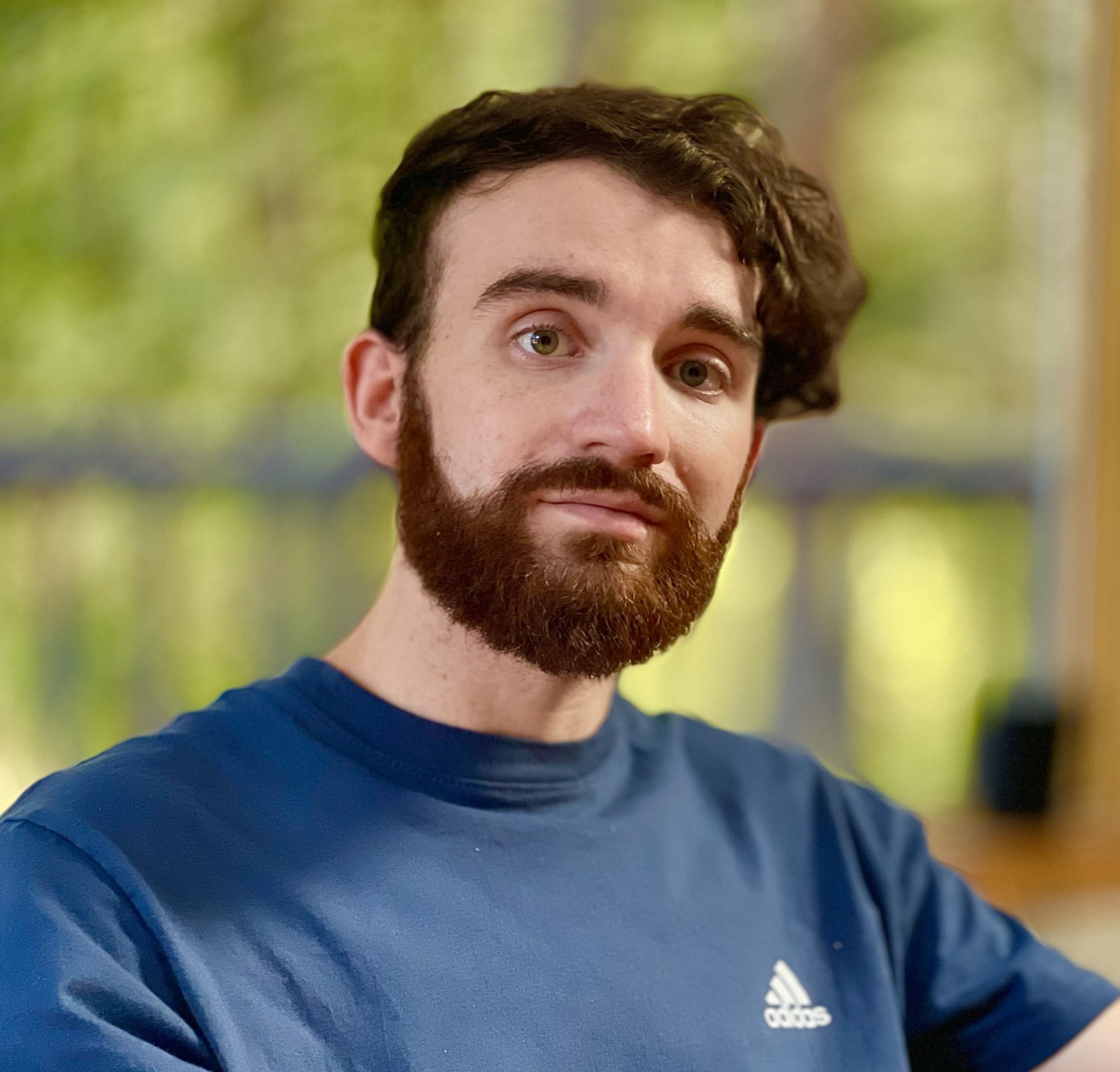
My Experience as an ARIN Fellow
Updated and republished from Riley O’Connor’s blog, m32.io.
In the final weeks of October, I traveled to Toronto to attend the NANOG 92 conference and the ARIN 54 meeting. I’ve long been aware of NANOG through its mailing list, and in my career, I’ve had plenty of interaction with ARIN, but this was my first time attending either event in person. I interact with ARIN on a regular basis, I’m apprised of its policy development through various sources, I have read some past meeting minutes, and, from an operational perspective, I am an expert on the role they play as a Regional Internet Registry (RIR). I’m plenty familiar with how it supports Resource Public Key Infrastructure (RPKI), the Internet Routing Registry (IRR), and Whois. However, until recently I hadn’t been privy to the processes that govern ARIN as an organization and how that impacts the Internet as a whole.
Last fall I was able to attend the ARIN 54 meeting in person as an ARIN Fellow. I found this to be a wonderful program for myself, and I believe it undoubtedly would be for anyone else at any stage in their career.
Growing Awareness and Making Connections
As a smaller network operator, it’s easy to be unaware about the things happening behind the scenes to keep a massive infrastructure like the Internet working. Technicians who make use of standards put in place by organizations like ARIN, the Number Resource Organization, the Internet Corporation for Assigned Names and Numbers, the Internet Engineering Task Force, and similar, may use these standards every day yet not know their origin. Perhaps you’ve heard of these organizations’ meetings but don’t know exactly what happens behind their doors.
That was me. From what I had gathered about ARIN meetings, there would be a decent group of IP resource holders and IP resource users present. My business partners had always thought attending one of these would be a great place to meet prospective IP resource leasing clients. While I did meet quite a few people at the ARIN meeting, I found NANOG to be the spot to grow business connections.
Support and Preparation
I had wanted to attend these conferences, but the cost and travel involved usually put it on the back burner for me. When I applied for the ARIN Fellowship Program, I actually thought that it consisted solely of a $350 stipend and some education. I expected to have to burden my business with the travel expenses. I discovered after being selected that ARIN covers everything and would send me to NANOG, too!
ARIN Fellows receive a great deal of primers and education prior to the meeting, including from members of the ARIN Advisory Council with whom they are paired for mentorship. I think this is great. It comes coupled with weekly virtual sessions leading up to the meeting. I learned quite a bit from these sessions and definitely feel like they helped me enter the meeting with an understanding of what would be happening. That helped me focus on gaining insight, as I wouldn’t have to be asking questions about what was going on. Plus, I had time to prepare some thoughts, questions, and answers.
Community and Commitment
The biggest piece of advice I can give to someone attending a NANOG conference or ARIN meetings is: Don’t be a wallflower. Coming from a small business, where I’m the technical lead and there aren’t many other like-minded people in my office, this was a great week. It didn’t last long enough. It was amazing to meet so many intelligent engineers and like-minded people. At NANOG, I made it my goal to meet as many relevant industry colleagues as possible. With the large community in attendance, I had my work cut out for me.
I don’t think I’ve ever enjoyed socializing as much in my life as I did at NANOG 92 and ARIN 54. I made some great friends and great business connections. I left feeling that I have more to learn and more to see from these groups. If you’ve ever thought about attending one of these events, just do it. If you think you’ll learn from the Fellowship, apply for it. If you get selected, do it. If you approach these events with a plan to socialize and you just walk up to people, you’ll have the best time. No need to be shy. Just start the conversation and you’ll have some great experiences.
I was able to have lunch with Daniel Sheppard, a maintainer of Netbox, a tool that is vital to our business, and we had a productive dialog about some of our use cases. I also approached Jonathan Black, the director of NANOG, who I imagined would have been very busy. He took the time to show me and another attendee the Toronto PATH (its downtown pedestrian walkway) and shared some interesting insights with us during the social event at the Hockey Hall of Fame. I’m very grateful for these experiences — they were uniquely uplifting for me — and the energy of the community was like this the whole time.
Above all, the people you meet at the NANOG and ARIN events can turn out to be some of the best connections you can make, whether from a business or personal perspective. I was lucky enough to make friends with Viput, an attendee who flew 30 hours from Thailand to participate in Toronto.
For me, this experience was the kickoff to a long journey with and commitment to these communities. The level of knowledge, experience, energy, and invigoration to be gained from these events — and from the ARIN Fellowship Program in particular — is unmatched. I look forward to my future involvement and continued participation.
Ready to experience the ARIN Fellowship for yourself? Apply for the ARIN 55 program from 9 to 27 January! For details and application instructions, visit our Fellowship Program page.
Any views, positions, statements, or opinions of a guest blog post are those of the author alone and do not represent those of ARIN. ARIN does not guarantee the accuracy, completeness, or validity of any claims or statements, nor shall ARIN be liable for any representations, omissions, or errors contained in a guest blog post.
Recent blogs categorized under: Fellowship Program
GET THE LATEST!
Sign up to receive the latest news about ARIN and the most pressing issues facing the Internet community.
SIGN ME UP →Blog Categories
RPKI • Updates • Outreach • Internet Governance • Grant Program • Tips • IRR • IPv6 • Public Policy • Caribbean • Elections • ARIN Bits • Fellowship Program • Training • Security • Guest Post • Data Accuracy • Business Case for IPv6 • IPv4 • Customer Feedback



